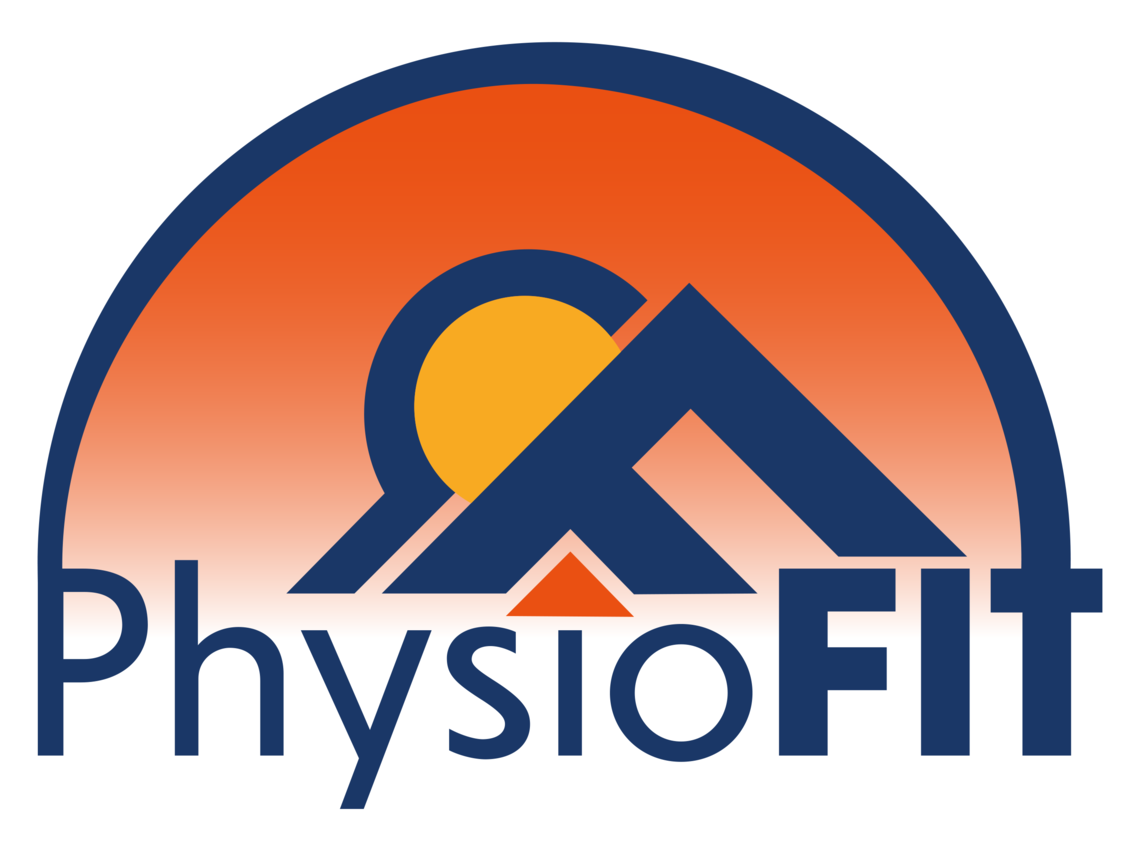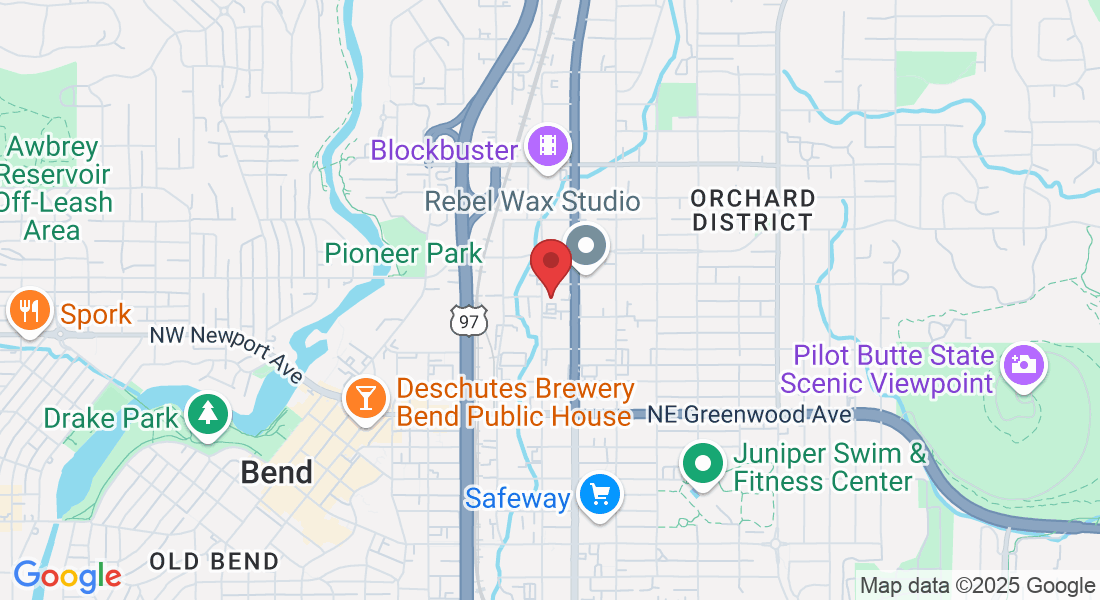Chronic Headache Relief
Free Your Mind From Chronic Headaches
Headaches are an occasional unwelcome guest for many of us, but when they become a frequent visitor, you may be dealing with chronic daily headaches. A broad term that includes various subtypes defined by their frequency and duration. These headaches can be significantly debilitating, but with assertive initial treatment and ongoing management, pain reduction and fewer headaches are achievable. If this strikes a chord with your experience, don't hesitate to schedule an appointment with us.
Discover Unprecedented Relief from Chronic Headaches at PhysioFit: We prioritize personalization in your healthcare journey, acknowledging that individuals with Chronic Headaches necessitate distinct treatment strategies. Utilizing the potency of empirically-supported, fitness-centric physical therapy in bend, we aim to do more than merely alleviate your symptoms. Our mission encompasses the enhancement of your holistic health, prevention of enduring pain, and speeding up your recuperation period, enabling a smooth transition back into your daily routines.
What You Should Know
Migraine headaches can be categorized into two types: episodic and chronic. While chronic migraines happen more than 15 days in a month, episodic ones occur less frequently.
The very medicine you're consuming for headache relief could potentially be causing headaches: Taking pain relievers beyond two days a week, even common ones such as ibuprofen, puts you at risk for what's known as a rebound headache. Similarly, abruptly discontinuing regular pain medication can provoke headaches.
The origin of your headaches may not necessarily be your head: Secondary headaches stem from an underlying health issue, like degenerative disc disease in the spine, sinus infections, or past experiences of head trauma. Although infrequent, persistent headaches and visual disturbances can also be caused by brain tumors.
A proper diagnosis of a TMJ or TMD problem involves a thorough evaluation from a professional.

What Causes Chronic Headaches?
The triggers of numerous chronic daily headaches remain somewhat elusive. Authentic (primary) chronic daily headaches don't present with a detectable root cause.
However, a series of conditions could instigate nonprimary chronic daily headaches, such as:
Vascular Issues: Any inflammation or complications with the blood vessels surrounding or within the brain, including serious events like a stroke, could trigger chronic daily headaches.
Infectious Diseases: Certain infections, notably meningitis, can also result in the manifestation of chronic daily headaches.
Intracranial Pressure Discrepancies: Abnormally high or low pressure within the skull could prompt these types of headaches.
Presence of a Brain Tumor: Brain tumors, whether malignant or benign, could be a potential cause of chronic daily headaches due to the pressure they exert on surrounding brain tissue.
Traumatic Brain Injury: Traumatic events causing injury to the brain can also be a catalyst for chronic daily headaches, as the brain recovers and copes with the trauma.
If any of this information resonates with your current situation, we urge you to schedule an appointment with us immediately. Don't let hip pain diminish your life quality - allow us to help you embark on the path to relief today.
Can Chronic Headaches Be Prevented?
The short answer is yes, chronic headaches can often be prevented, or at least their frequency and intensity can be significantly reduced. The following strategies focus on lifestyle changes and self-care measures which can help you manage and potentially prevent chronic headaches:
Identify Headache Triggers: Proactively documenting each headache in a journal can highlight patterns and triggers, thereby helping you to avoid these. Make sure to record important details like the time the headache started, what you were doing, and how long it lasted.
Cautious Medication Usage: Excessive consumption of headache medications, including over-the-counter ones, can increase the severity and frequency of headaches. It's advisable to consult your doctor for a safe plan to gradually reduce medication use, as abrupt discontinuation can lead to severe side effects.
Quality Sleep: For an average adult, 7-8 hours of sleep a night is essential. Try to maintain a consistent sleep schedule and seek medical advice if you have sleep disturbances, such as snoring.
Regular, Balanced Meals: Aim to eat healthy meals at consistent times daily. Be mindful of potential food and drink triggers like caffeine, and adjust your diet accordingly. Weight loss should be considered if obesity is a concern.
Regular Exercise: Engage in routine aerobic activities to improve your physical and mental well-being and reduce stress. Choose enjoyable activities like walking, swimming, or cycling, and remember to gradually increase the intensity to prevent injury.
Stress Management: Stress can often trigger chronic headaches. Incorporate stress-reducing techniques into your routine such as yoga, tai chi, and meditation. Moreover, staying organized, planning ahead, and maintaining a positive outlook can greatly help in managing stress.
Moderate Caffeine Intake: While caffeine is included in many headache medications due to its pain-alleviating properties, it can also exacerbate headaches. Try to reduce or completely remove caffeine from your diet.

Common Symptoms of Chronic Headaches
Chronic daily headaches, as the name implies, occur more than half the month, lasting for a period exceeding three months. Primary chronic daily headaches are those not precipitated by any underlying health condition.
These headaches can be of shorter or longer duration. Those falling in the long-lasting category persist for over four hours. The types of long-lasting chronic headaches encompass:
Persistent Migraines
Continuous Tension-Type Headache
Newly Appearing Daily Persistent Headache
Hemicrania Continua
Remember, if you resonate with any of the symptoms or conditions mentioned, we highly recommend making an appointment with us for a thorough evaluation and personalized treatment plan.
Please Note: The information provided on our website is intended for general education and is not a substitute for professional medical advice. Each individual's situation and body is different. Therefore, what may work for one person may not work for another. We care about your well-being and advise you to reach out to us to discuss your specific needs before implementing any advice from our website.
Your Source for All Things Physical Therapy in Bend Oregon
The PhysioBlog

Speeding Up Post-Operative Recovery: Physical Therapy for Knee Replacements
Introduction
When knee pain dominates your life, knee replacement surgery can be a last resort when seeking relief. But, let's not forget - the journey doesn't stop at the operating room. Indeed, it extends further, with successful recovery hinged on a robust rehabilitation plan. With decades of experience, we at PhysioFIT understand this journey inside and out. We offer custom-tailored physical therapy that is designed to expedite your recovery and get you back on your feet—literally.
Why Physical Therapy is Essential After Knee Replacement
Physical therapy is the backbone of recovery, post-knee replacement. It's the catalyst that drives knee mobility, muscle strength, and most importantly functionality. Moreover, it acts as the key to unlocking your routine activities sooner, and with less discomfort. You might be wondering, "How can I speed up my recovery after knee replacement?" The answer lies in a well-structured, professionally guided physiotherapy program. And at PhysioFIT, that’s exactly what we do to help you rebound quickly and bounce back better than ever.
Unraveling the Complexities of Knee Replacement Surgery
Before we dive into the recovery, let's take a quick look at what exactly happens during a knee replacement surgery:
Knee Replacement Surgery: An Inside Look
Also known as a total knee arthroplasty (TKA), knee replacement surgery involves replacing damaged parts of your knee with medical grade hardware designed to mimic your natural architecture. A surgeon’s go to for individuals with severe knee damage that disrupts daily activities. A procedure that can be a game-changer for those that truly need it.
The Initial Stages of Post-Operative Care
When the surgery is complete, the initial focus shifts to healing the wound, managing pain, and preventing any post-operative complications. Once these initial concerns are put to rest, the spotlight moves to rehabilitation and, our main protagonist, physical therapy.

How Does a Physical Therapist Aid in Recovery?
The story of recovery is told in two parts: Pre-surgery and post-surgery physiotherapy.
Prepping Up with Pre-Surgical Physical Therapy
Before you even set foot in the operating room, physiotherapy starts preparing your body for what's to come. It involves strengthening the muscles around your knee and boosting your overall fitness. This pre-operative “warm-up” acts as a solid foundation for a smoother recovery process. Essentially, the more robust base we can build before surgery, the more buffer you have for the inevitable losses that come with any surgery.
The Post-Surgery Physical Therapy Journey
After the surgery, physical therapy takes center stage in your recovery. From regaining your knee's full range of motion to early loading and strengthening of muscles and restoring normal movement patterns, physiotherapy plays a pivotal role in your recovery. You may ask, "How many times a day will I have to go to physical therapy after knee replacement?" It's important to remember that each patient's needs are unique, and your physiotherapist will recommend a frequency that best fits your recovery plan.
Physical Therapy Techniques to Fast-Track Knee Replacement Recovery
Please Note: The information provided within this article is intended for general education and is not a substitute for professional medical advice. Each individual's situation and body are different. Therefore, what may work for one person may not work for another. We care about your well-being and advise you to reach out to us to discuss your specific needs before implementing any advice from our website.

Aggressive Restoration of Range of Motion
Stretching, exercise, and soft tissue mobilization work are the first stepping-stone to restoring the necessary movement in your knee. There is a finite time in the healing process where range of motion must be regained or it may be lost forever. Finding a therapist that knows when and how to push you to make the gains necessary and in the appropriate time is key to maximizing all the good work your surgeon did.
Strengthening Exercises for Knee Support
The muscles supporting your knee need to regain their strength, and this is where strengthening exercises come into play. These exercises aim to stabilize the knee joint and promote improved movement, helping your knee get its groove back. It all comes down to gaining functional strength, that being, the ability to be stable and confident in your knee so you can get back to what's important to you.
Improving Balance and Control
To walk, run, or dance, you need balance and coordination, and these exercises aim to bring that back. They are crucial for regaining your daily life activities post-surgery. These are the pillars of your recovery that we as your physical therapist will focus on.
How PhysioFIT Can Facilitate Your Recovery
Personalized Physical Therapy Sessions
At PhysioFIT, we understand that each patient is unique and that no two knees are the same. More important than that, we appreciate that you are more than just a knee. You are a whole person with thoughts, feelings, dreams, and fears and we work to address all these things to truly center your care around YOU. We tailor our physiotherapy sessions according to your specific needs. Our team of expert physical therapists in Bend will assess your mental, physical and emotional condition, understand your goals, and design a unique recovery program that speeds up your journey.
Utilizing Best Practice While Mastering The Fundamentals
In this era of rapid technological advancement, we leave no stone unturned to incorporate the best therapy techniques while still doing the basics exceptionally well. This includes manual therapy, time tested therapeutic exercises, and compassionate patient education. Our objective is to ensure you are well-informed about your recovery process and feel empowered to actively participate in it.
The Extra Mile: Home Exercise Programs
Along with our physical therapy sessions, we provide home exercise programs that you can carry out at your convenience. These exercises complement your in-clinic therapy, helping to maintain continuity in your recovery process. As your physical therapist, our goal here is to make sure you're actively involved in your rehabilitation every day, even when you're not in the clinic. Taking agency over your health is vital to us. We don't aim to “make you better”, we want to empower you and give you the tools to get you to where you want to be.
Answering the Question: Can You Overdo Physical Therapy?
While physical therapy is essential to recovery, you might wonder, "Can you do too much physical therapy after knee replacement?" The answer is yes. Overdoing physical therapy can lead to exhaustion and could potentially slow down recovery. Remember, recovery is not a race; it's a marathon. The goal is not to rush but to ensure steady, consistent progress.
Conclusion
Knee replacement surgery, for those that need it, can be an avenue to a life free of chronic knee pain. However, the surgery is just the first step. The true journey begins after the operation with a comprehensive rehabilitation plan. Physical Therapy is the cornerstone of this journey, offering an effective way to speed up recovery, regain mobility, and reclaim your life.
As professional physical therapists in Bend, with years of experience, we can't emphasize enough the importance of a high quality physical therapy program. From pre-surgical preparation to post-operative exercises, every stage of the journey is crucial. Here at PhysioFIT, we understand this journey and are committed to providing personalized, top-notch physical therapy to guide you through your recovery.
Remember, the path to recovery will have its ups and downs, but with dedication, patience, and the right guidance, a pain-free life is within your reach. If you are preparing for a full knee replacement surgery, reach out to us here at PhysioFIT and we can help guide you through this journey: www.PhysioFITBend.com
Frequently Asked Questions (FAQs)
How can I speed up my recovery after knee replacement?
A: A well-structured, professionally guided physiotherapy program can significantly speed up recovery. This should include pre-surgical and post-surgical exercises, along with a good home exercise program.
What is the average time for PT after knee replacement?
A: The duration of PT after knee replacement varies depending on the individual's progress, but typically, a course of 6-12 weeks is common.
Can you do too much physical therapy after knee replacement?
A: Yes, overdoing physical therapy can lead to exhaustion and could potentially slow down recovery. It's essential to follow a balanced and sustainable routine under the guidance of a professional physical therapist in Bend.
How many times a day should I do physical therapy after knee replacement?
A: The frequency of physical therapy sessions depends on the individual's specific needs and recovery progress. Your physiotherapist will recommend a frequency that suits you best.
How can PhysioFIT help me with my recovery after knee replacement surgery?
A: At PhysioFIT, we offer personalized physical therapy sessions tailored to your specific needs. We utilize advanced therapy techniques, provide home exercise programs, and educate patients about their recovery, contributing to a faster, smoother rehabilitation process. Reach out to us today for all your pre/post-operative knee surgery needs today: www.PhysioFITBend.com
Please Note:The information provided within this article is intended for general education and is not a substitute for professional medical advice. Each individual's situation and body are different. Therefore, what may work for one person may not work for another. We care about your well-being and advise you to reach out to us to discuss your specific needs before implementing any advice from our website.
Copyright PhysioFIT 2025 . All rights reserved


